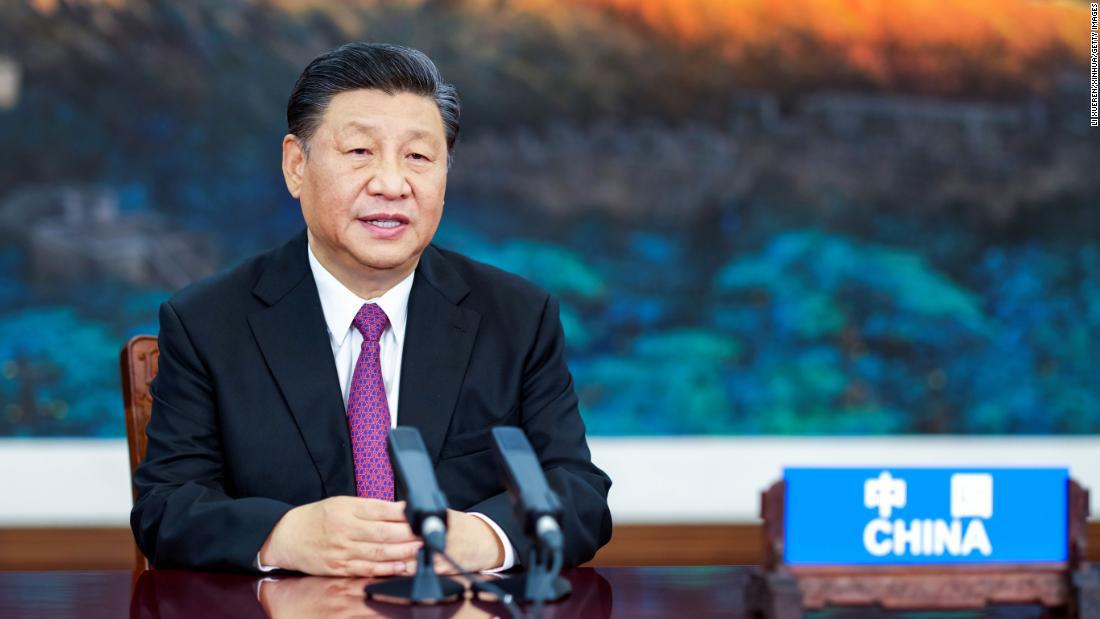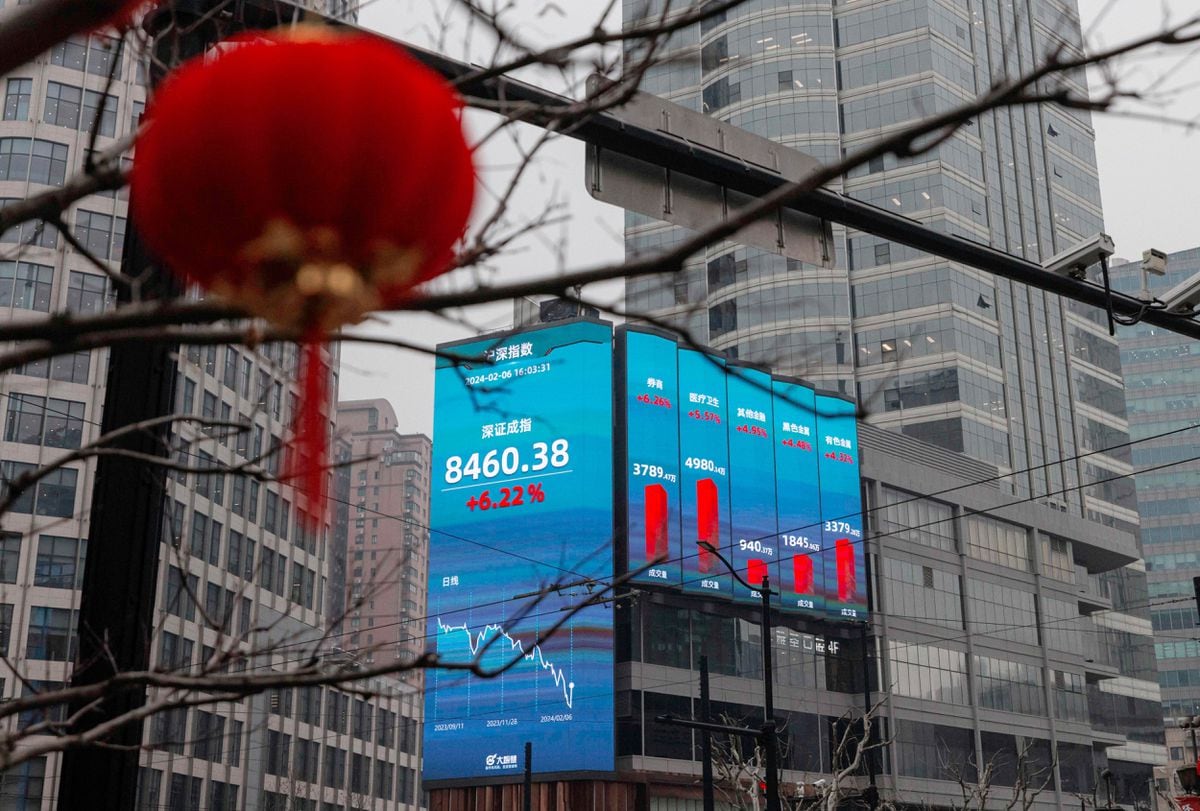The risks and strengths of Xi Jinping's economic plan in China 3:01
Hong Kong (CNN Business) --
China is urging Western central banks not to raise interest rates too quickly to fight inflation, while going the other way to fight a sharp economic slowdown.
Chinese President Xi Jinping on Monday called on the world's major economies to spur growth by coordinating their policies as the world continues to emerge from the turmoil caused by the coronavirus pandemic.
"Global industrial and supply chains have been disrupted. Raw material prices continue to rise. Energy supply remains tight. These risks compound each other and increase uncertainty about economic recovery," Xi told attendees at the 2022 World Economic Forum during a speech delivered online.
He warned of the effects of raising interest rates excessively too quickly, saying such moves could threaten global financial stability.
The United States could lose all flights to China before the Beijing Winter Olympics
"If major economies slow down or do a 180-degree turn in their monetary policies, there would be serious negative repercussions," Xi said.
"They would pose a challenge to global economic and financial stability, with developing countries bearing the brunt."
advertising
Many global policymakers are grappling with mounting inflationary pressure and beginning to end their pandemic-era stimulus plans.
Why might US interest rates rise?
2:37
The Federal Reserve last month signaled it could raise interest rates three times in 2022, while the European Central Bank announced it would end its crisis-era bond-buying program in March. The Bank of England raised interest rates last month, becoming the first major bank to do so since the pandemic began. Central banks in Eastern Europe and Latin America also raised interest rates aggressively to cool inflation.
But China -- the only major economy to grow in 2020 -- is taking a different tack as its economy slows and it faces the challenges of maintaining momentum while sticking to its "zero covid" strategy. a strict policy of blocking off areas to prevent outbreaks that isolated the country from much of the world.
The People's Bank of China has been loosening its purse strings to keep things in order.
On Monday, the Central Bank cut a key interest rate for the first time since April 2020. Last month, it cut both the required reserve ratio -- which determines the amount of cash that banks must keep in reserve -- and the prime lending rate, a rate at which commercial banks lend to their best customers and which serves as a benchmark for other loans.
Beijing's latest moves came as the country reported its economy expanded 8.1% in 2021. While that figure exceeded the government's own targets, growth slowed to half that pace in the final quarter of the year. year and it is expected to suffer even more due to covid and the deepening of the real estate crisis.
Chinese government economists warned of a contagion effect caused by interest rate hikes by the Federal Reserve.
Zhu Baoliang, chief economist at China's State Information Center -- a government policy think tank -- told the central bank-backed Financial News that the country must monitor and potentially prevent any financial crisis caused by rising prices. Fed interest rates.
"Historically, Fed rate hikes have triggered financial and economic crises in other countries on many occasions," Zhu told the newspaper, adding that an imbalance could cause foreign capital to flee China.
KFC criticized for food waste 0:45
Global investments have poured into Chinese bonds in the past year as investors chase comparatively juicy returns in the country's markets.
Strong capital inflows contributed to an exceptional performance of the yuan, which was one of the best performing currencies in 2021.
Zhu also drew attention to the dollar-denominated bond market for Chinese companies, which he noted was expanding rapidly.
Many companies in China's tough real estate industry hold dollar-denominated bonds;
if they become even more expensive to return, that could cause more headaches.
Interest rates will rise in 2022. Here's what it means
And Yang Shuiqing -- a researcher at the Chinese Academy of Social Sciences, a leading government think tank -- also wrote in an article on state-run news portal China.com that Fed rate hikes could also curb demand. in the United States, thus affecting exports from China, the United States' largest trading partner.
The International Monetary Fund, meanwhile, warned that a sharp tightening of monetary policy in the United States or Europe could cause economic turmoil in developing economies.
"Emerging economies should brace for possible bouts of economic turmoil" due to faster policy tightening by the Fed, the IMF wrote in a blog post last week.
Sentiment about economic growth and inflation has changed in the United States, the IMF wrote, as prices rise at the fastest pace in nearly four decades.
The economic recovery in emerging countries, meanwhile, has not been as robust, he said, adding that those places face "substantially higher public debt."
"A faster rate hike by the Federal Reserve in response [to inflation] could roil financial markets and tighten financial conditions globally," the IMF said, also warning of slowing demand and trade for United States and its effect on developing economies, which depend on exports to American consumers.
Federal Reserve economists wrote last June that the risk of contagion to emerging markets depends on a number of factors, including conditions within those regions and how vulnerable and sensitive they are to rising US rates.
China Xi Jinping



